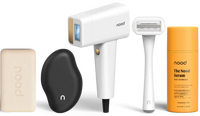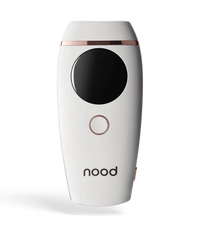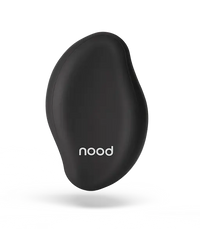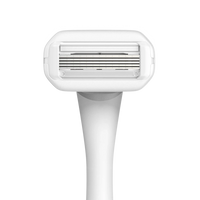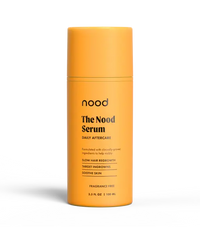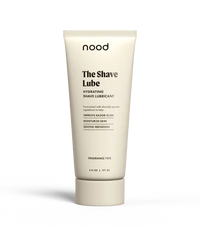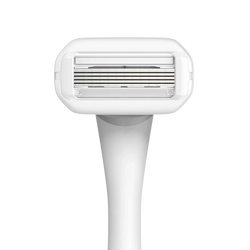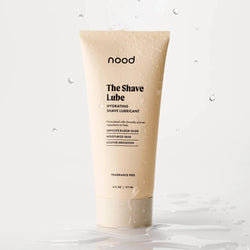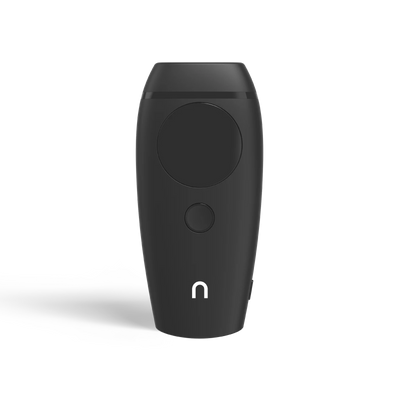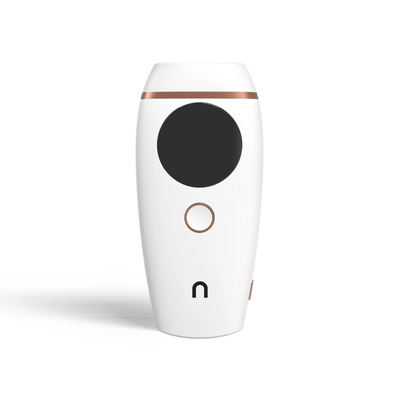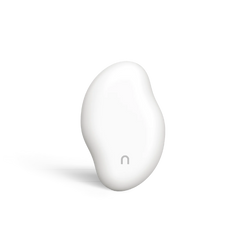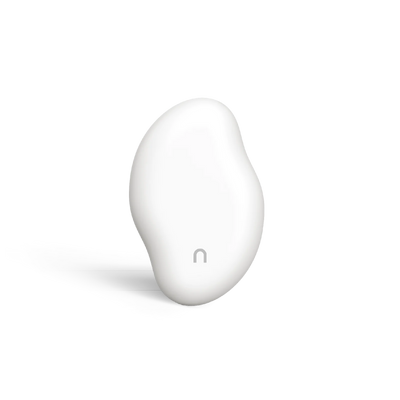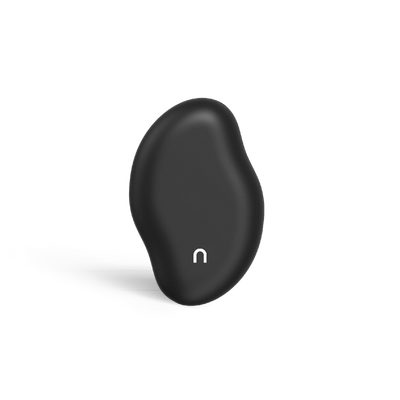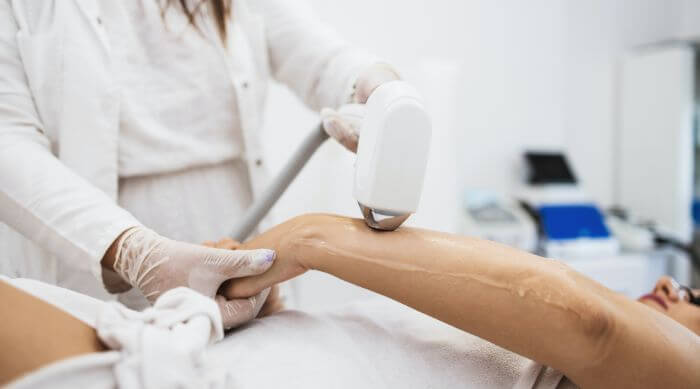
The Low Risks of Flashing: Side Effects of Laser Hair Removal
Laser hair removal is one of the safest and most effective ways to get rid of unwanted hair long-term. Serious laser hair removal side effects are rare, and any you may experience typically go away faster than it takes hair to regrow after a morning shave.
At-home IPL treatments come with even fewer side effects, including any discomfort you may feel with professional sessions.
Table of Contents
Laser hair removal is usually safe.
Common Side Effects & How to Treat Them
Severe side effects from laser treatment are extremely rare.
Laser hair removal is usually safe.
Laser hair removal works by targeting the pigment, or melanin, in your hair follicles. A laser light (or intense pulsed light with IPL treatments) destroys the sac around those follicles to prevent hair regrowth.
For the vast majority of users, both laser hair removal and IPL are safe, effective ways to reduce unwanted body hair. It’s also less painful than hair removal procedures like waxing or electrolysis.
View this post on Instagram
Any side effects that might happen are usually mild, temporary, and even preventable.
Common Side Effects & How to Treat Them
The most common side effects of laser hair removal are skin irritation and mild swelling at the treatment site. Both typically go away within hours or at max a day or 2 after your treatment.
Skin Irritation
Skin irritation after a treatment may look like a mild sunburn. If you know your skin is super sensitive, talk your dermatology office about creams, cooling devices, or topical anesthetics before each session.
You can also use ice packs for 10-minute intervals if your skin is feeling a little prickly. This is especially helpful with more sensitive areas like the underarms or bikini line.
For at-home IPL users, you probably won’t feel much discomfort at all during your treatment, but a cooling aloe gel like The Reviver will soothe any irritated skin after treatment.
View this post on Instagram
Swelling
You may also experience mild swelling in the form of small bumps or a skin rash at the treatment site. Again, soothing gels or cold compresses can relieve some of that discomfort until your skin calms down on its own.
Severe side effects from laser treatment are extremely rare.
Does laser hair removal have long term side effects? Laser hair removal does not have long term side effects in the vast majority of users.
In rare cases, laser hair removal may cause blisters, scarring, and crusting at the treatment sites, but even these side effects are treatable and go away with time.
Can laser hair removal cause hyperpigmentation? Laser hair removal may cause hyperpigmentation, or spots on the skin that are darker than others, and hypopigmentation, or skin lightening.
People with darker skin types are more likely to experience discoloration or pigmentation changes than those with lighter skin tones.
With dark skin and dark hair, lasers and IPL devices have trouble picking up on differences in pigment. Some brands are making progress with laser lights that do a better job with dark skin, but you’ll need to visit the dermatologist’s office for that type of laser.
Paradoxical hypertrichosis is another rare side effect. That’s when laser hair treatments cause the opposite effect than they should: coarser, darker, or excessive hair in the treatment areas.
This side effect seems more common with facial hair and in those with darker skin colors or hair colors, but there’s still quite a bit we don’t know about the condition.
Skin cancer and other myths.
Laser hair removal treatments do not cause cancer. There is no research-backed science to suggest that professional laser hair removal methods or at-home IPL treatments increase your cancer risk in the treated areas.
We’re talking about any cancer, but especially skin cancer, one of the the most pervasive myths related to laser hair and IPL treatments. While we’re at it, let’s take care of another one.
Does laser hair removal affect fertility? Laser hair removal does not affect fertility. The devices don’t reach beyond the surface of your skin and hair follicles, so it’s just not possible.
Simply put, the level of hair reduction you enjoy with these methods may make your skin feel baby soft, but there’s no evidence that you’ll affect your fertility in the process.
Safety First: Preparing for Laser Treatment
Prepping your skin (and the rest of you!) before you go to town on your body hair is a key component of a safe session. Here are a few prep tips:
- Shave the treatment area. It may sound counterintuitive, but shaving (or dermaplaning for facial hair) helps the devices “see” the hair follicles better.
- Just don’t pull hair at the root. We really only mean shaving. Avoid waxing, plucking, threading, tweezing, or anything else we haven’t thought of that pulls hair at the root.
- Exfoliate. While you’re less likely to see ingrown hairs with laser hair removal vs. waxing, a gentle exfoliant like The Revealer could reduce that risk even further.
- Test it out. Guys and gals with sensitive skin may want to try a patch test before targeting a larger area to rule out skin irritation.
- Work with a clean area. You don’t want to be all lubed up with moisturizers or heavy creams when it’s time to hit those follicles. Apply your device to clean, dry skin.
At Nood, we recommend treatments twice a week for the first few months to start, then again every 3-6 months for new hair growth. If you notice any kind of irritation after treatment, go easy on yourself and practice some gentle skin care.
When to Avoid Flashing
You know we’re all in on laser hair treatments as one of the closest things to permanent hair removal out there, but there are cases where you should avoid them.
We’ve already mentioned precautions for anyone with darker skin tones, but let’s look at a few more:
- Your hair is blonde, red, or gray. There’s just not enough pigment in those hair colors for the devices to do their best work.
- Your skin is irritated already. IPL devices are gentler on sunburns than professional treatments, but you should still try to avoid sun exposure and wear sunscreen before any cosmetic treatment. Open sores are also a no-go.
- You have epilepsy. Flashing lights on the devices may trigger seizures if you have photosensitive epilepsy.
- You’re pregnant. We may be overly cautious here, but you should always check with your doctor before any cosmetic treatments when you’re expecting.
Go Nood at home for effective, risk-free hair removal.
At Nood, we’re as serious about your safety as we are about tackling that peach fuzz on your upper lip once and for all.
Try The Flasher 2.0 today for the easiest path to effective, pain-free hair removal.
The Flasher™ 2.0
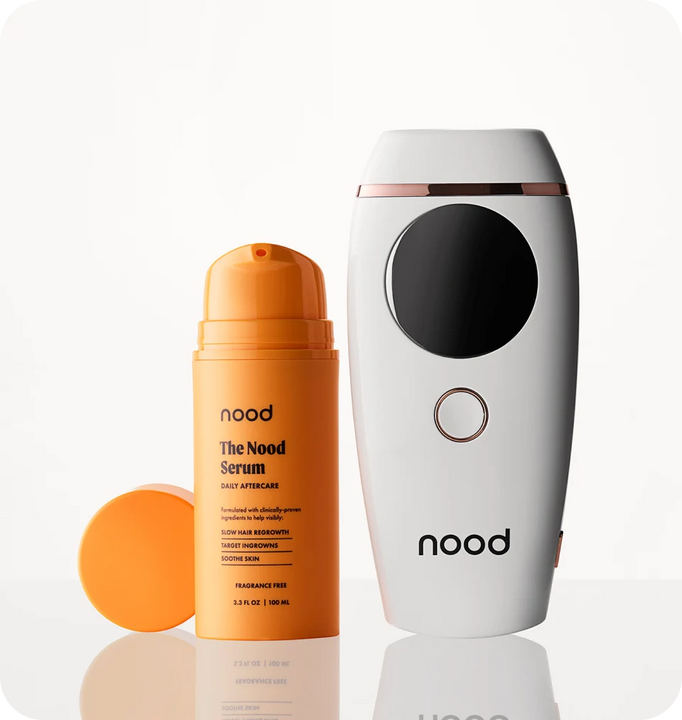
$199.00
Safely remove unwanted hair with The Flasher 2.0 by Nood. Works everywhere that hair grows, including bikini, Brazilian, underarms, legs, and face. Start seeing results in 2-3 weeks and permanent hair removal in 6-8 weeks. … read more
Sources
- A review of the adverse effects of laser hair removal
- Pigmentary changes after alexandrite laser hair removal
- Successful Treatment of Laser Induced Hypopigmentation with Narrowband Ultraviolet B Targeted Phototherapy
- Paradoxical Hypertrichosis Associated with Laser and Light Therapy for Hair Removal: A Systematic Review and Meta-analysis
- Lasers and intense pulsed light (IPL) association with cancerous lesions

